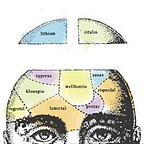Is Your Brain Adequately Nourished to Cope With COVID-19 Stress?
By Bonnie Kaplan, Ph.D. & Julia Rucklidge, Ph.D.
We all understand that well-nourished people are more resilient in the face of stressors. International organizations have already expressed their concern about the marginal nutritional status of many people in the developing world: What will happen when COVID-19 reaches African nations, or temporary camps that house Syrians forced to flee their country? The fear is that the rate of COVID-19 infection and death will be much higher because of their poor nutritional status, which will compromise their physical immunity.
Those concerns focus on physical, not mental, health. Yet the brain is the most metabolically active organ in our bodies, demanding the most resources. It is the organ that needs to be fed dozens of nutrients every minute of every day for optimal function. The blood vessels feeding oxygen and nutrients to your brain every minute your heart is beating would wrap around the planet Earth twice — that’s how densely packed your brain blood vessels are, to enable them to feed your brain.
And here is a fact that may not yet be on your radar: Even in our developed, western society, our brains are only marginally nourished, contributing to the epidemic of mental illness visible even before COVID-19 arrived on the scene.
The causes of inadequate brain supply of nutrients even in wealthy nations are many-here are just two, both of which we could improve:
How do plants do that? They produce vitamins by using those 15 or so minerals-if they are present in the soil. Mineral-poor soil results in mineral-poor plants, which cannot produce the vitamins we humans rely on.
We have known since the post-World War II starvation experiments that cutting nutrient intake by 50 percent in normal, healthy adults results in an almost 100 percent rate of the symptoms currently plaguing our countries: depression, anxiety, ADHD. Now, we as a society are running that experiment on our own: Our people are consciously making the choice to consume processed chemicals for more than 50 percent of our food intake.
These two problems need to be addressed as soon as possible, with determination and vigilance-unless we as a society decide to accept the pre-pandemic prevalence rate of 20 percent with mental health problems. But right now, we are all understandably focused on the pandemic, which is resulting in enormous amounts of stress and anxiety. What could we all do to help nourish our brains?
First and foremost, we need everyone to understand that mental health resilience is a function of a well-nourished brain.
- At all times (not just during pandemics), exclude all the highly processed “foods” that are in packages with long lists of chemicals that you can barely pronounce.
- Start your day with a nourishing breakfast! Consider an omelet with vegetables, or muesli (oats, nuts, raisins) with milk, yogurt, fresh fruit.
- Focus on ensuring the majority of your diet consists of real foods. Start with a whole- foods diet approach including good fats, nuts, seeds, fish, a modest amount of meat, vegetables, fruit, whole grains. Limit your sugar intake and be careful about ramping up on coffee and alcohol. The World Health Organization guidelines are very appropriate.
- During times of extra stress (like this pandemic) consider taking a B complex every morning after breakfast. There are at least ten clinical trials from around the world, including research following disasters in both New Zealand (Christchurch earthquakes) and Canada (Calgary floods), showing that B vitamins in particular can be helpful with recovery. These studies show as much as a 50 percent drop in anxiety and stress within a few weeks of adding B complex. The B vitamins are very good for improving our resilience.
- For more significant, enduring mental health problems, there is a substantial body of research identifying the robust clinical benefits from nutrient formulas containing the full broad spectrum of approximately 30 minerals and vitamins.
Is nutrition the only factor in managing our mental health? Of course not, but it is the one that is the most often overlooked.
Food matters. And if we really want to get serious about mental health during this pandemic, we need to get serious about nutrition.
Bonnie Kaplan, Ph.D.
Nutrition and Mental Health: Bonnie has published on the biological basis of mental health — in particular, the contribution of nutrition to brain development and function, micronutrient treatments for mental disorders, and the effect of intrauterine nutrition on brain development and maternal mental health.
Julia Rucklidge, Ph.D.
Nutrition and Mental Health: Julia’s interest in nutrition and mental illness grew out of her own research showing poor outcomes for children with psychiatric illness despite conventional treatments. She has been investigating the role of micronutrients in mental illness.
Originally published at https://www.madinamerica.com on April 22, 2020.
